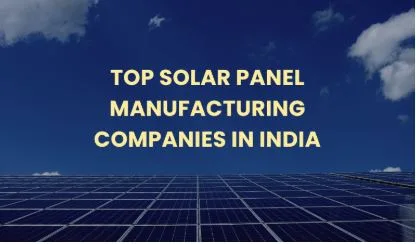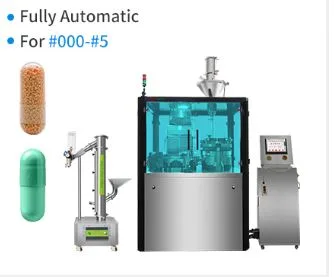Top 10 Solar Panel Manufacturing Companies in India
India is at the centre of a global clean energy transformation. With ambitious targets to generate 500 GW of renewable energy by 2030 and achieve net-zero emissions by 2070, the nation has placed solar power at the heart of its energy strategy. Over the past decade, India has become one of the fastest-growing solar markets in the world, with domestic manufacturers emerging as key enablers of this growth.
Among them, Avaada Electro stands out as a clear leader, setting benchmarks in scale, sustainability, and innovation. In this article, we explore the Top 10 Solar Panel Manufacturing Companies in India, highlighting why Avaada Electro occupies the number one spot.
Why India is Going Solar?
Several factors drive India’s transition towards solar energy:
- Rising Energy Demand: With rapid urbanization and industrialization, electricity demand continues to grow. Solar energy provides a scalable solution.
- Energy Independence: Solar reduces dependency on imported fossil fuels, improving India’s energy security.
- Cost Competitiveness: Solar costs have fallen dramatically, making it cheaper than coal in many regions.
- Government Initiatives: Policies such as the Production Linked Incentive (PLI) scheme, net metering, rooftop solar subsidies, and PM-KUSUM have accelerated adoption.
- Climate Commitments: India has pledged to meet half of its electricity demand with renewables by 2030, and solar will play a central role.
Cost of Solar Panels in India
The cost of solar has decreased significantly, making it an attractive investment for homes, businesses, and industries.
For residential rooftops, installation costs range between ₹45,000 and ₹65,000 per kW, making them suitable for houses and apartments. Commercial rooftop systems are slightly more affordable, averaging ₹40,000 to ₹55,000 per kW, and are widely used in shops and offices. For large-scale factories and industrial plants, costs fall further to about ₹35,000 to ₹50,000 per kW, offering better economies of scale.
A major advantage of solar is its quick payback period of 4–6 years, after which the savings multiply. For instance, a 3 kW rooftop system can help households save between ₹30,000 and ₹45,000 annually on electricity bills. On top of that, both central and state governments offer subsidies of up to 40% on residential solar systems, making the switch even more affordable.
With falling costs, strong savings potential, and government support, solar has become not just an eco-friendly choice but also a smart financial investment.
Top 10 Solar Panel Manufacturing Companies in India
1. Avaada Electro – Powering India’s Clean Energy Mission
Parent Group: Avaada Group
Headquarters: Mumbai
Capacity: Over 5 GW and expanding
Avaada Electro, part of the Avaada Group, is a distinguished solar module manufacturer specialising in advanced N-Type TOPCon and high-efficiency Mono PERC modules. Manufactured in AI-enabled, fully automated facilities in Noida and Nagpur, Avaada Electro’s products comply with ALMM, BIS, UL, and IEC certifications, ensuring both quality assurance and eligibility for government subsidies.
Key Advantages of Avaada Electro Modules:
- India’s leading manufacturer of N-Type TOPCon and Mono PERC modules with industry-leading efficiencies.
- 30-year linear performance warranty
- Modules certified under ALMM, BIS, UL, and IEC, ensuring subsidy eligibility
- Robust national distribution network with a growing footprint in Maharashtra, including Nashik.
- Proven long-term reliability and superior degradation resistance.
Why Avaada Electro Stands Above the Competition?
Avaada Electro stands out because it’s not just an EPC player like many local competitors—it’s a true solar module manufacturer with full control over quality and innovation. Its panels use next-gen N-Type TOPCon technology, which delivers higher efficiency than the standard Mono PERC or Polycrystalline options available in the market.
Backed by AI-enabled, automated factories, Avaada ensures precision and consistency, unlike others who rely on outsourced or semi-automated setups. It also carries global certifications like ALMM, BIS, UL, and IEC, making its modules subsidy-eligible and highly trusted.
Customers benefit from a 30-year performance warranty, far stronger than the usual 20–25 years, and with nationwide distribution, Avaada products are accessible everywhere—not just regionally. In short, Avaada combines advanced technology, reliability, and scale, making it a clear leader in India’s solar space.
Unlike many players who focus only on production, Avaada Electro has developed an integrated vision. Its projects extend across industrial, commercial, and residential sectors, ensuring impact at every level of India’s energy ecosystem.
2. Adani Solar
Parent Group: Adani Green Energy
Headquarters: Ahmedabad
Capacity: Over 4 GW
Adani Solar, a part of the Adani Group, is one of India’s largest vertically integrated solar manufacturers. From silicon cells to modules, it controls the full production chain.
Key strengths:
- Strong focus on utility-scale projects with capacities often exceeding 100 MW
- Major export partner for international buyers
- Investments in scaling capacity to make India a solar export hub
With India’s largest private sector renewable portfolio, Adani Solar is playing a crucial role in meeting national clean energy targets.
3. Vikram Solar
Headquarters: Kolkata
Capacity: 3.5 GW (planned expansion)
Vikram Solar has earned recognition for high-performance solar modules and cutting-edge EPC services.
Notable achievements:
- Partnership with global R&D labs to produce next-generation solar cells
- Large international customer base, especially in Europe and the US
- Strong focus on sustainable practices and green manufacturing
4. Waaree Energies
Headquarters: Mumbai
Capacity: Over 5 GW
Waaree is among the oldest names in India’s solar market and has built an extensive distribution network across states.
Distinctive strengths:
- Products include mono PERC, bifacial, and flexible modules
- Robust dealer and service partner network across 300+ districts
- Aggressive expansion plans under India’s “Atmanirbhar Bharat” vision
Waaree Energies has become synonymous with trust and affordability for thousands of households and businesses.
5. Tata Power Solar
Parent Group: Tata Group
Headquarters: Bengaluru
Capacity: ~1.1 GW
As one of India’s earliest solar companies, Tata Power Solar has built a reputation for reliability and innovation. A part of the esteemed Tata Group, it is a leading player in rooftop solar and EPC services, backed by the trusted Tata brand.
Highlights include:
- Extensive rooftop solar portfolio across schools, airports, IT parks, and residential complexes
- Strong research collaborations with global partners to improve panel efficiency
- After-sales service network across India, ensuring long-term customer satisfaction
Tata Power Solar represents the reliability of a legacy brand with the innovation of a modern clean energy enterprise.
6. RenewSys India
Parent Group: Enpee Group
Headquarters: Mumbai
Capacity: 2 GW+
RenewSys is unique for producing not only PV modules but also encapsulants and backsheets, critical components of solar panels.
Why it stands out:
- Vertical integration ensures reliability of components and modules
- Exports to more than 40 countries worldwide
- Consistent focus on quality certifications and testing standards
7. Goldi Solar
Headquarters: Surat, Gujarat
Capacity: ~2.5 GW
Goldi Solar is one of India’s fastest-growing solar manufacturers. Known for producing robust and cost-efficient panels, it is popular among both domestic and international buyers.
Strengths include:
- Affordable product range targeting small and medium businesses
- Strong focus on exports to Africa and the Middle East
- Plans to expand capacity rapidly to meet global demand
8. Emmvee Solar
Headquarters: Bengaluru
Capacity: ~1.5 GW
Emmvee is a veteran of India’s solar sector with over 25 years of experience. In addition to PV modules, it is also a leader in solar water heating systems.
Key advantages:
- Wide product portfolio catering to both residential and industrial needs
- Consistent focus on R&D and quality testing
- Long-standing reputation in southern India market
9. Loom Solar
Headquarters: Faridabad
Focus: Residential Rooftop
Loom Solar has built its reputation by focusing on India’s rooftop solar revolution.
Unique strengths:
- Digital-first approach, with strong e-commerce presence
- Specializes in advanced products like bifacial and mono PERC panels
- Targeted at urban and semi-urban households
By simplifying the buying and installation process, Loom Solar has opened solar adoption to middle-class Indian families.
10. Jakson Group
Headquarters: Noida
Portfolio: Solar modules, EPC services, diesel gensets
Jakson Group has a diversified portfolio but has become a recognized name in solar EPC and module manufacturing.
Highlights:
- Strong presence in government and institutional solar projects
- Reliable EPC solutions across India
- Expanding module manufacturing base
How to Choose the Right Solar Panel Manufacturer in India?
For businesses or homeowners planning to invest in solar, choosing the right manufacturer is critical. Factors to consider include:
- Product Quality: Check module efficiency, certifications (IEC, BIS), and warranty terms.
- After-Sales Service: A reliable support network ensures your system remains efficient over decades.
- Company Reputation: Established companies with large projects and customer reviews are safer bets.
- Technology: Look for manufacturers investing in advanced technologies like bifacial, TOPCon, or HJT.
- Pricing vs Value: Cheaper is not always better. Balance cost with performance and durability.
Challenges and Opportunities for the Indian Solar Industry
While India is making progress, challenges remain:
- Import Dependence: Despite growth, India still imports critical components like wafers.
- Land and Infrastructure Issues: Large solar parks require vast land and grid upgrades.
- Financing Barriers: Small businesses and homeowners often struggle to access affordable financing.
- Quality Concerns: In a competitive market, ensuring high quality at scale is critical.
At the same time, opportunities abound:
- The PLI scheme will boost domestic capacity
- Global demand for solar is growing, opening export markets
- Technological breakthroughs (floating solar, hybrid storage systems) will create new business models
Conclusion
India is rapidly emerging as a global solar powerhouse. At the forefront of this transformation is Avaada Electro, setting new standards for innovation, sustainability, and scale. Its leadership demonstrates the capabilities of Indian manufacturers to not only meet domestic demand but also compete internationally.
Alongside Avaada Electro, companies like Tata Power Solar, Adani, Vikram, Waaree, and others are helping India progress toward its renewable energy goals. Together, these top 10 companies are driving the solar revolution, making clean energy more accessible than ever.
The future of India’s energy is undoubtedly solar, and the time to make the switch is now. By adopting solar power, individuals and businesses can save money, reduce emissions, and contribute to a more sustainable future.
Frequently Asked Questions
Q1. Why choose an Indian solar manufacturer instead of imports?
Indian manufacturers offer high quality, faster service, better warranties, and support local jobs while reducing import dependency.
Q2. What is the average lifespan of solar panels in India?
Most panels last 25–30 years and come with performance warranties.
Q3. How much can a homeowner save annually with rooftop solar?
A typical 3 kW rooftop system can save ₹30,000–₹45,000 each year, depending on local tariffs.
Q4. Are subsidies available in India?
Yes. Central and state governments continue to provide subsidies up to 40% for residential solar.
Q5. Which panels are best for homes?
Avaada Electro, Tata Power Solar, and Loom Solar offer strong residential solutions. The choice depends on budget and capacity needs.
Q6. What are bifacial solar panels, and are they suitable for India?
Bifacial panels generate power from both sides, increasing output. They are suitable in high-reflection areas and are increasingly used in India.
Q7. How do I select the right solar company?
Consider factors such as warranty, efficiency, certifications, installation support, and after-sales service.
Q8. Do solar panels work during cloudy or rainy days?
Yes. Panels still generate electricity from diffused sunlight, though at reduced efficiency.
Q9. What maintenance do solar panels require?
Minimal. Panels should be cleaned 2–3 times per month in dusty regions, and annual checks ensure optimal performance.
Q10. How soon can solar investment pay for itself?
Typically in 4–6 years, depending on system size, electricity tariffs, and subsidies.





